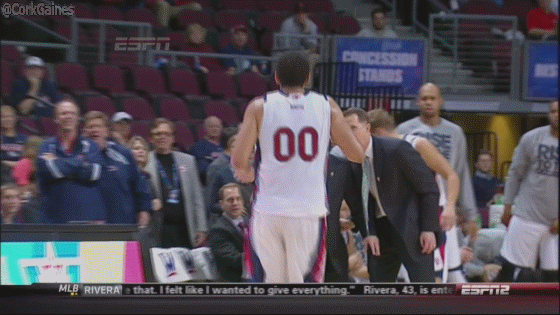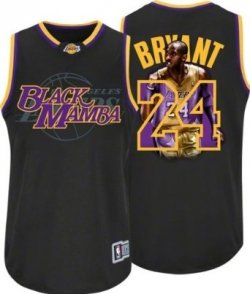On teamwork and a busted out tooth
With the NCAA's March Madness basketball tournament underway I wanted to share a little story from the world of college basketball before I come back to my senses and realize once again that the college game is inferior in every way to 'real' basketball, i.e. the NBA.
A week or so ago, during the West Coast Conference's post-season tournament, the team from Saint Mary's University found itself in a tough game versus conference rival San Diego. Late in the game during a scrum for possession of the ball, San Diego big man Jito Kok managed to separate Saint Mary's forward Brad Waldow from one of his front teeth.
Undeterred, and as you can see in the GIF below, Waldow reacted like most tough competitors would, with the knocked-out tooth in hand he proceeded to head over to the bench to find someone to relieve him of said chiclet so he could continue playing in the still undecided game. But take a look at what happened as Waldow looks to the sideline for some help with the tooth:
Did you catch what happened as Waldow approached the bench and looked for someone to take the tooth from him?
First Saint Mary's head coach Randy Bennett leans back in a 'no 'effin way I am taking the tooth' manner, and delegates down the bench to his assistant. The first assistant coach then coolly points to the next assistant down the line. And once that assistant refused to help a brother out, Waldow just tossed the tooth on the floor in order to head back into the contest.
Waldow, the player, the guy out there on the front lines taking shots to the mouth, loosing teeth, bleeding all over the place couldn't get any of the suits on the bench, the organization's 'leaders' to give him an (admittedly gross) hand when he needed it. And all Waldow wanted to do was to continue playing, to keep putting it on the line for the team.
Sure, the natural reaction just about anyone would have in that kind of a circumstance would be similar to the Saint Mary's coaches - I mean, who the heck wants a handful of someone's bloody, busted-out tooth?
But their reaction is also instructive I think, because when their player was in need, no one stepped up to help, they let their first reaction overcome their roles as leaders. They ask players like Waldow to make all kinds of sacrifices in the name of the team. It would not have killed one of them to make a little bit of a sacrifice themselves and help him out when he needed it.
This may be a goofy, insignificant example but I think it serves as a good reminder for any of us that have a leadership position. We ask the people we are leading to give up things all the time.
What are we prepared to give up for them?
Have a great weekend!
 Leadership,
Leadership,  sports tagged
sports tagged  8 Man Rotation,
8 Man Rotation,  Sports,
Sports,  basketball,
basketball,  teamwork
teamwork  Email Article
Email Article 
 Print Article
Print Article 




